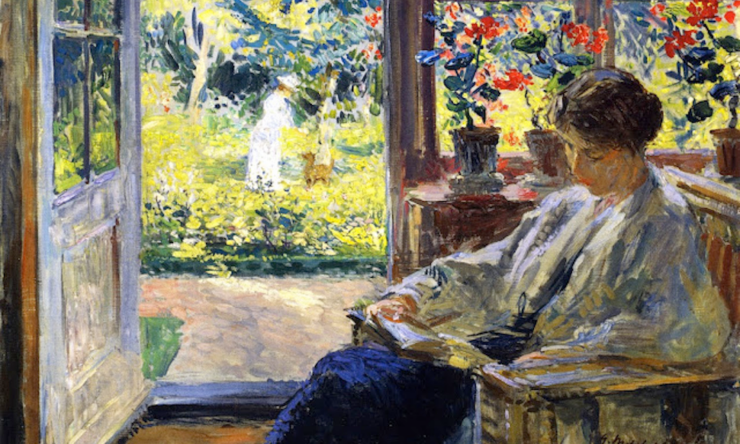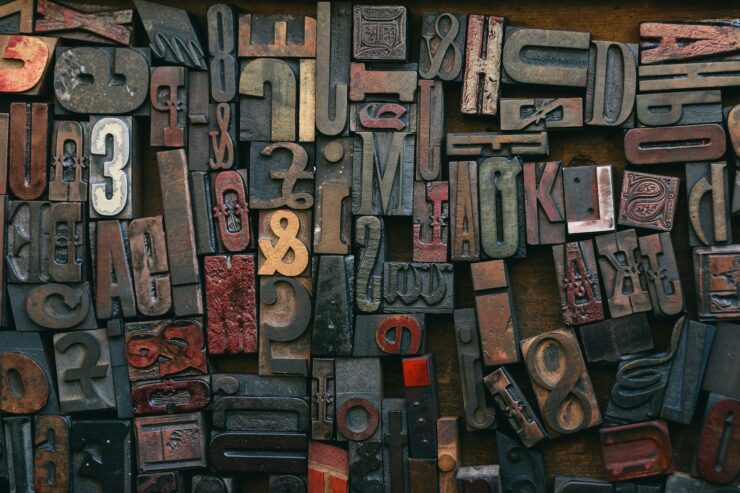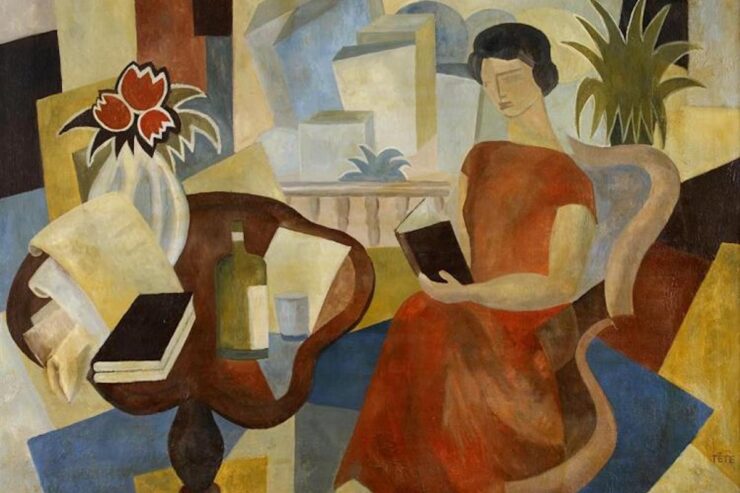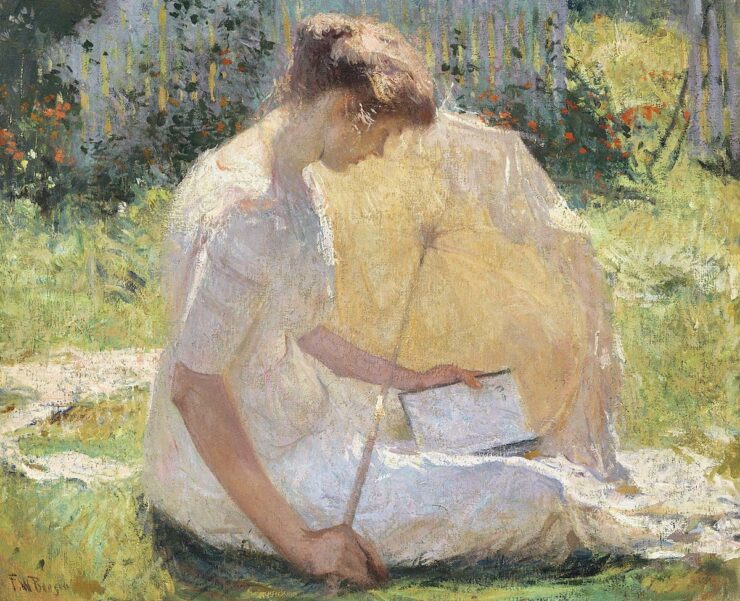Some things we do with books: Read them, obviously. Engage with them. Think about them, and all the different words for that: ponder, contemplate, consider. Tell people about them. Shelve them. Give them away. Check them out from the library. Buy them at a bookstore. Buy them online. Get into impassioned arguments about them.
What we don’t do? Consume them.
It is past time to push back on using this language of capitalism to talk about the experience of art. Words, as a colleague used to say with increasing frustration, mean things. And we have words that mean all kinds of things—words that have been replaced by and smashed into “consumer.” Moviegoer. Listener. Viewer. Audience, for crying out loud.
Reader.
Why is it so hard to call something what it is?
I have a lot of answers to that swirling about in my head, and one of them is simple: Publishing calls readers “consumers” because publishing is (mostly) a for-profit business in a capitalist world and what it cares about is that you buy books. When the industry refers to consumers, it makes it clear that what matters is not whether you read the books, but that you purchase them. That you exercise your almighty dollar in service to the books. After that? Eh, whatever.
(Yes, there are individuals—many of them! Many brilliant folks!—within publishing who care very much if you read the books. But I’m talking about the institutional scale. That did not stop me, in my last publishing job, from saying “readers” in response to my boss every time he talked about “consumers,” but that was my own tiny pushback, one I hope you might adopt.)
As much as I dislike this industry habit, I understand from whence it comes. What I don’t understand is why so many readers—and moviegoers and TV watchers and music fans and other people who love art in all its forms—are comfortable adopting it. “What are you going to consume this weekend?” is a question I have seen asked online, seemingly without irony.
My partner says that when he hears this phrasing, he thinks of the Nintendo character Kirby, inhaling everything in his path. Kirby spits some of those things out as weapons, internalizes other objects as skills or powers. It’s true that we experience art and it changes us. But we’re not Kirby. We take in art, intellectually and emotionally, and it still exists. The truth of art is that it is un-consumable. You cannot devour it like an apple, leaving only a core for whoever comes next. You can take it all in and it still persists. You can inhale a book, a show, a movie, and it remains there, ready for the next viewer or reader to breathe in. Consuming things makes them yours and no one else’s.
Art is never just yours to engage with. (With rare exceptions. Latte art. You can consume that.)
Words mean things. And if you think this is too picky, too particular, let me point you at another word that erases meaning: content. At one time, it seemed like “content” was going to be trapped on the internet, a word that meant things online. But now content is everything. Movies are content. TV shows are content. Ad copy is content. Promotional materials are content. If everything is content, it’s all the same, and can be devalued the same way (as we’re seeing with the corporate behavior that necessitated the current writers’ strike). Nothing is art. Nothing is film or literature or visual art or memoir or essay or whatever else it is you like to experience. It’s all just content. Grist for the mill.
Why has it become almost strange to call things what they are? An airline traveler is a passenger. A shopper is a customer. A lover of books is a reader. We are moviegoers, art fans, coffee fiends, tea drinkers, sushi lovers, fashion-obsessed; we are clients and visitors and people who need things like toothpaste and dish soap. We are only consumers because it is easier for capitalism to make us all the same. Little Kirby mouths, inhaling whatever we can.
In the just-published Monsters, a brilliant book I am not yet done with because I want to keep reading it, drawing it out over as much time as possible, Claire Dederer writes:
We now exist in a structure where we are defined, in the context of capital, by our status as consumers. This is the power that is afforded us. We respond—giddily—by making decisions about taste and asserting them. We become obsessed with this thing, mega-fans of that. We act like our preferences matter, because that is the job late capitalism has given us. And here’s the funny thing—our choices and preferences do matter, because something has to. Our selves are constructed from the shitty stuff of consumption, but we remain feeling people nonetheless.
I want her to push back on this, to resist it, in her nuanced and wise and clever and funny book about the art of monstrous men. I want her to say it doesn’t have to be like this. But it is like this, is the thing. That is the job late capitalism has given us. It wants us to pretend that “consumer” is a status, that what we consume is what we are. And so it’s made “consume” apply to everything, like materialism run ever more rampant. (Kirby, again, in my imagination, but with shopping bags and an iPhone.)
Depressingly, all of this has been building for ages. In a 1979 speech, then-President Jimmy Carter said:
Human identity is no longer defined by what one does, but by what one owns. But we’ve discovered that owning things and consuming things does not satisfy our longing for meaning. We’ve learned that piling up material goods cannot fill the emptiness of lives which have no confidence or purpose.
The president spoke against consumerism. And yet here we are, decades later, accepting “consumer” as a label where once a different word, a word that meant something more specific, once served.
In Monsters, Dederer does push back, repeatedly, against the times “we” is used to obfuscate, to hide behind. And in that spirit I want to be clear that when I say “we,” here, I mean us readers. I mean the people who come to a website on the internet to read about books—reviews, lists, Close Reads, essays, comparisons, thoughts, this column. If you are here, you care. You read. And so I am enclosing you gently in my “we” when I say: We don’t have to do this. We can read. We can watch. We can engage, if we must use a generic word.
What do you value? What do you want to raise up in this world, this big world in which we live brief lives? How do you want to shape things with language, within a life, with the way we interact with the world? What role does art play in your life? What role beauty? What do you want to set free rather than consume?
In 1998, in the preface to her book Ex Libris, Anne Fadiman wrote:
This model of readers as consumers—one I have abetted in many a book review myself—neatly omits what I consider the heart of reading: not whether we wish to purchase a new book but how we maintain our connections with our old books, the ones we have lived with for years, the ones whose textures and colors and smells have become as familiar to us as our children’s skins.
There’s another thing we do with books, with the stories that live both inside them and apart from them: We love them. (And sometimes we hate them.) We reread them, revisit them, stroke their covers when taking them off the shelves, lament not having enough time to read them, carry them from home to home, town to town, country to country, complaining about the weight and yet reluctant to leave a single one behind. Our libraries are our histories, not of things we’ve consumed, but people we’ve walked with for a day or a week or a month; stories we’ve internalized; stories that inspire or terrify or infuriate or devastate. We don’t consume them. We live them, in a very real way.
Language has power. Art can’t be consumed.
Molly Templeton lives and writes in Oregon, and spends as much time as possible in the woods. Sometimes she talks about books on Twitter.














